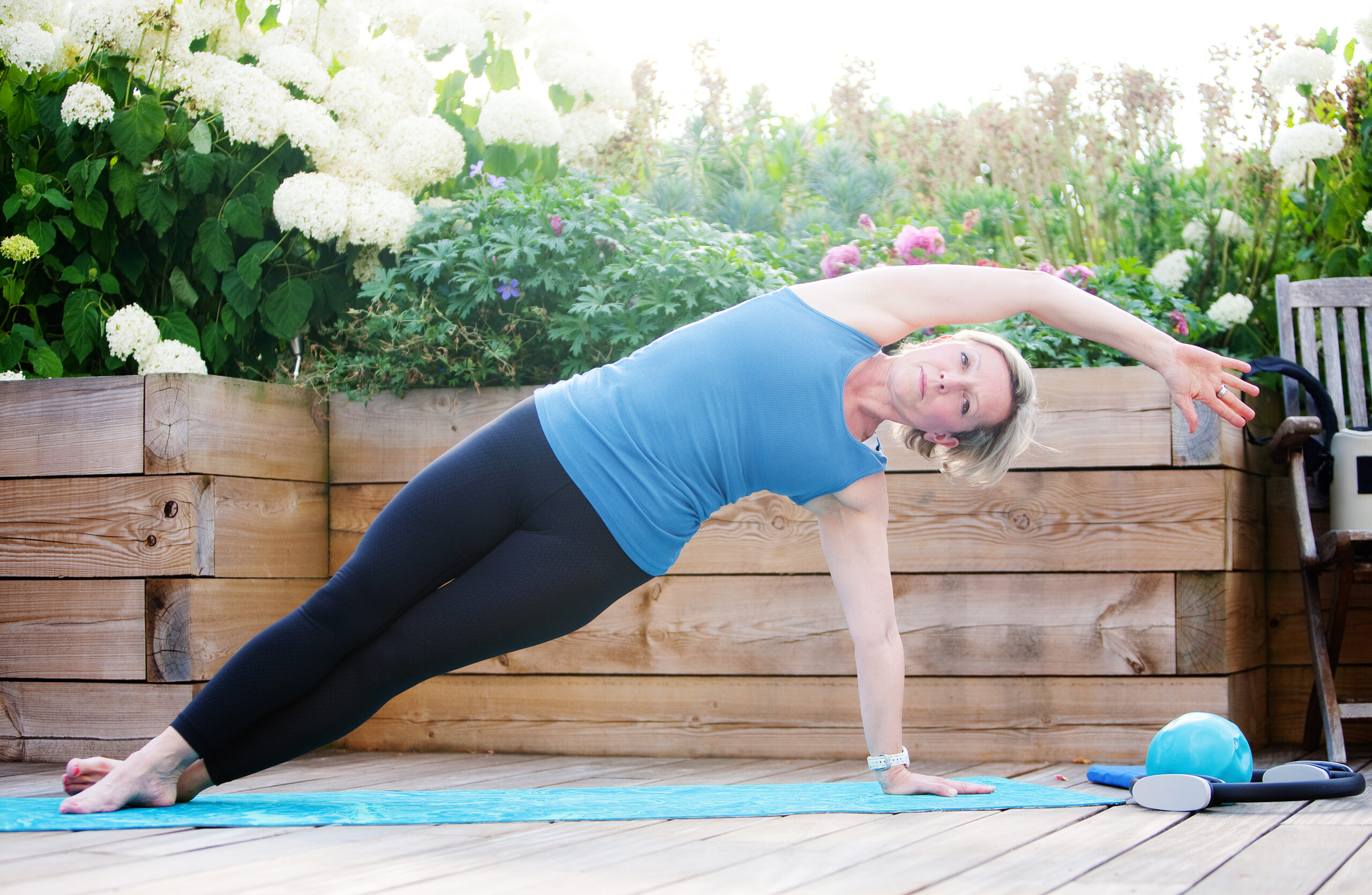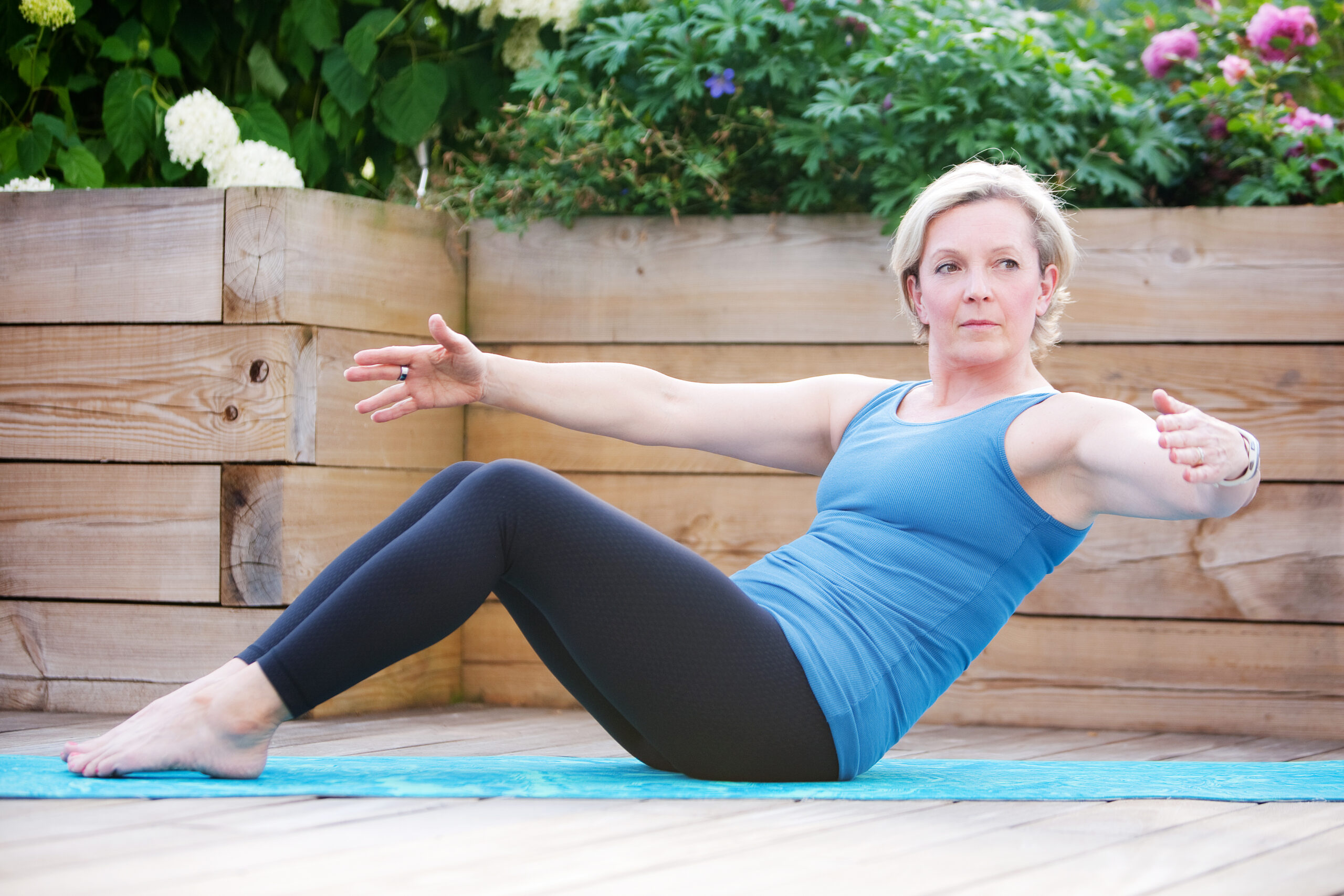
Blog written by Sarah Russell, author of The Bowel Cancer Recovery Toolkit.
When it comes to bowel cancer, exercise could well be one of the most powerful tools in your armoury. It helps you manage the side effects of treatment and it might just save your life.
We need to start thinking about physical activity as the 4th treatment option for bowel cancer (alongside chemo, surgery and radiotherapy).
Being active during and after your treatment will help you overcome many of the debilitating side effects from chemotherapy and radiotherapy, such as fatigue, muscle loss and weakness. It can help your body tolerate the treatments better and there is emerging evidence that exercise can help your body fight the cancer cells.
Some studies show that being active after a diagnosis of colorectal cancer can improve your chance of survivorship by around 30%.
But above all, being active gives you a sense of wellbeing and control and boosts your psychological health.
It helps you feel that you’re doing something for yourself. And it just makes you feel better.
Yet I also know that exercise is one of the most difficult things to do when you have bowel cancer.
Despite the research, the messages from medical professionals about exercise are mixed and contradictory. There is very little encouragement to be active, and not much in the way of supervised exercise classes or groups. The ‘rest is best’ message is unfortunately very pervasive in medicine and society, so people aren’t getting the encouragement they need. If the Doc says to rest, then that’s what you’ll do.
Some research I did in 2018 (on behalf of medical devices company ConvaTec.co.uk) found that 90% of people who had bowel cancer said they didn’t do enough exercise for good health, as recommended by the World Health Organisation (150 minutes of moderate activity per week).
Statistics like that keep me awake at night.
If you’re not meeting guidelines for exercise, you increase your risk of other co-morbidities – diabetes, heart disease, depression, arthritis etc and fall into a vicious circle of inactivity and worsening quality of life. And we know that around 70% of people with cancer have at least one other chronic condition.
So basically we need to get moving and change this statistic, and fast.
People with bowel cancer need to get moving and feel confident around exercise, not to be scared of exercise or allow the barriers they face to prevent them being active.

But where to start?
But it’s hard to know where to start, or what’s safe. What sort of exercises should you do after surgery? Can you exercise with a stoma? How much exercise can you do when you’re having chemo? What if you just don’t feel like it? And how are you meant to get active when you feel exhausted and sick?
You might be sceptical, uninterested or just too unwell to think about exercise, or think that the notion is crazy when you can’t even get out of bed.
But you CAN do it. It’s going to require a shift in mindset and to think about ‘exercise’ in a very different way. It’ll need you to dig deep into your resilience and find a support crew and specialists to help you.
Try to think about what you can do rather than what you can’t.
But first, here are 10 reasons why exercise is so great for people with bowel cancer:
Reason 1
It is completely safe to be active when you have bowel cancer. In fact, not only is it safe, but it should be viewed as part of your treatment and recovery plan. Some studies have shown that being active after diagnosis, you can reduce the risk of recurrence of colon cancer by around 30%.
Reason 2
Being active when you’re having chemotherapy and radiotherapy can help to combat some of the side effects and long-term consequences of treatment such as muscle loss, weakness and fatigue. Even short 10-minute walks will make a huge difference. Little and often is best.
Reason 3
Rest is not best for anyone, even when you have bowel cancer. By resting too much, you risk become even weaker and losing muscle… which results in loss of confidence and loss of fitness. Get the balance right between movement and rest instead. After surgery you do not need to ‘rest’ for 6-12 weeks, instead gradually start to become more active, walking more and doing core exercises.
Reason 4
Even if you have advanced cancer, bone metastases or a complex condition it’s still ok for you to be active. You may need to make some adaptations or work under the supervision of an exercise specialist or physio, but some sort of movement is one of the best things you can do to help you cope with cancer treatments and for quality of life.
Reason 5
It might seem counterintuitive, but research has shown that exercise is a great way to overcome cancer related/chemotherapy fatigue. Studies show that doing some gentle exercise (short walks to start with or some stretching, pilates or cycling) can actually help you feel more energised and reduce your feelings of fatigue.
Reason 6
But you don’t have to go to the gym. Being ‘active’ really means just sitting less and moving more. It doesn’t have to be hard and it definitely does not have to hurt. Exercise needs to nourish you, not punish you.
Reason 7
If you’re an athlete or already do a lot of activity, you can continue to exercise throughout treatment if you feel well enough. There are examples of runners, rowers and competitive athletes who can still train when they’re having chemotherapy or other treatments. You may need to adapt your training level or certain exercises for a while, but if you feel well there is no reason why you should stop exercising completely. You just have to listen to your body.
Reason 8
The mental and psychological effects of exercise are immeasurable and incredibly powerful. Using movement as a way to recover after surgery and treatment will help you to rebuild your body, your confidence, self-esteem and energy levels. In fact I think the mental aspect of exercise is the most important of all, giving you a sense of control and positivity.
Reason 9
You don’t have to feel 100% well to exercise. It’s ok to start feeling tired or even quite unwell. Just moving a bit, going for a walk, doing some gentle stretches or something like yoga can actually help you feel better. You may have to push yourself to get started, but once you’re going, you’ll realise your body can do more than you thought.
Reason 10
And finally… after abdominal surgery for bowel cancer and especially if you have a stoma, you absolutely must do core/abdominal rehab exercises. You can start them within a few days after your operation. It’s essential to strengthen the muscles and restore the function of your core. Even though some doctors and nurses are cautious, clinical nursing guidelines advise that it’s safe to start 3-4 days after surgery with appropriate exercises. You’ll find these exercises in my book ‘The Bowel Cancer Recovery Toolkit’ and also online in my rehab exercise
classes and videos at www.theostomystudio.co.uk
There is a huge gap in patient care after bowel surgery. Too often people are told what they can’t do, and there’s very little support to tell them what they can do.
The Bowel Cancer Recovery Toolkit, aims to fill this gap, with expert advice, support and encouragement to help you exercise and remain active during and after your diagnosis.
So go out there and challenge the statistics (and help me to sleep at night!). Sometimes you will need to give yourself a push to get going when it might be the last thing you feel like doing. Showing up and getting started is always the hardest part, but you can do it.
‘When it comes to exercise, something is always possible, and something is always better than nothing’.
